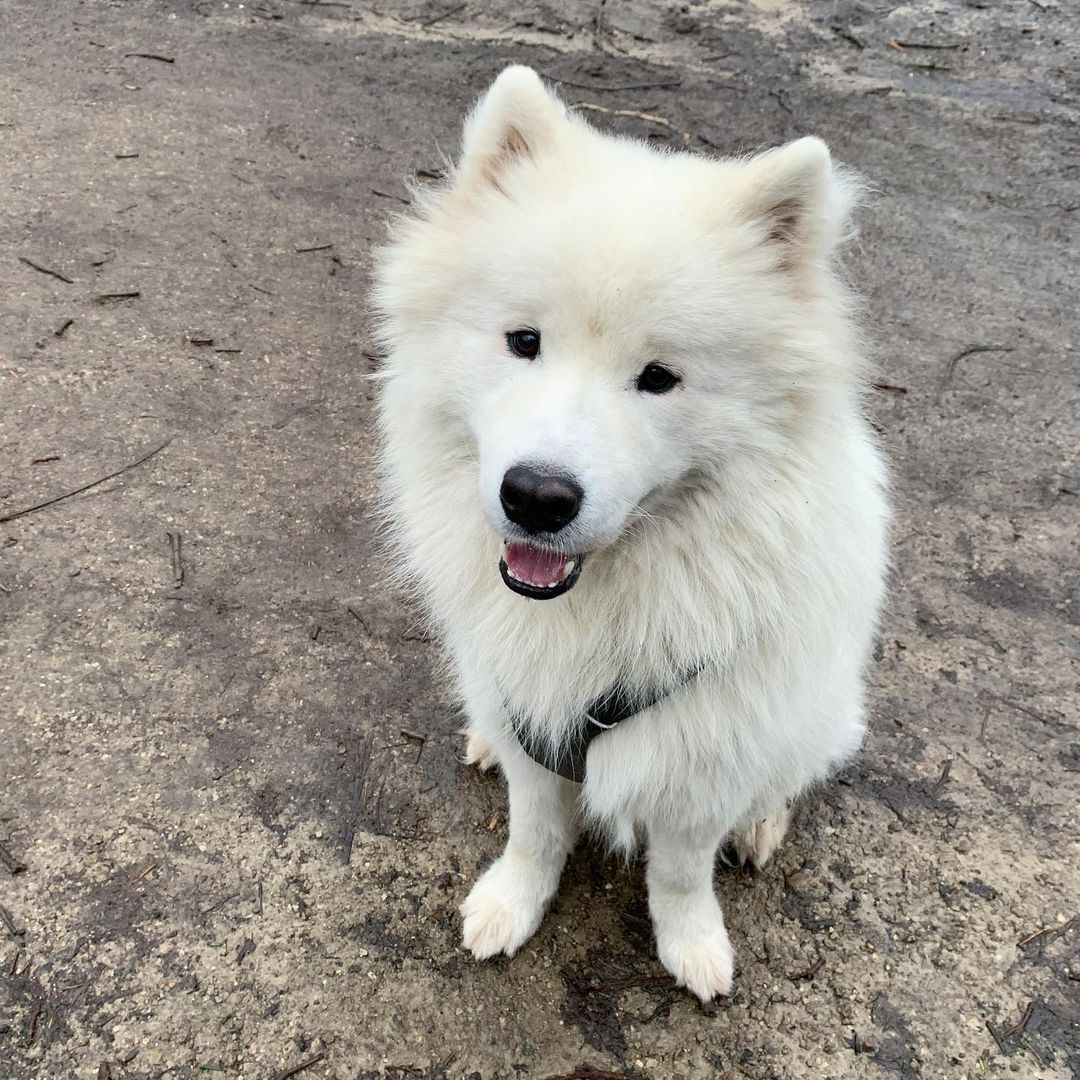Currently, many pet owners use veterinary medicine for dogs and cats in emergencies. Or unable to get help from a Veterinarian. Here are some basic guidelines and recommendations when deciding to give your pet any medication for your reference.
If you do not have veterinary expertise, use veterinary medicine, especially chemical or brand name drugs. You must then have a veterinary prescription for your dog or cat. Or consult your doctor because there are some principles of treatment that may apply to humans, but not dogs or cats.

1. Certain drugs for human use are dangerous for dogs and cats
If injected into a person with a tube of 1ml / 1mg of Strichnine sulfate, it will kill 1 Chihuahua dog, or a dog under 3kg within 15 minutes with systemic symptoms such as tetanus, dogs and cats die from respiratory paralysis.
If injected with 2 ampoules of Atropine sulphate 1ml to humans, it can also kill 1 dog as above within 30 minutes with symptoms of reducing or stopping body secretions.
Many pain relievers commonly used for humans: Aspirin, Ibuprofen (Advil), Acetaminophen (Tylenol) can be dangerous for dogs and cats with symptoms of vomiting, tremors, pain or coma. Because cats and dogs do not have enough enzymes to break down these pain relievers.
Do not use narcotic drugs or drugs to treat diseases for dogs and cats. Some owners treat their dogs with diarrhea with medication. Dogs are also addicted and cannot be cured with other drugs.

2. Some dog and cat therapies are not the same as humans
Dogs and cats with continuous dry vomiting, bloody diarrhea, caused by virus Pavovirus, Care ... should not use Oresol water, Glucose sugar for drinking because the more stimulated, the more vomiting, vomiting immediately, the dog gets tired and dies quickly. Use caution with antiemetic atropin, antihemorrhagic vitamin K in this case. It is best to balance water and electrolytes with intravenous fluids.
Do not treat diarrhea for dogs and cats with drugs belonging to the Sulphamide group such as: Trimazol (Biseptol), Sulphaguanidine... Because these drugs will cause kidney inflammation. If the dog does not drink much water or is dehydrated.
Be careful when injecting B-Complex into cats and dogs. Many pets, especially Becgie, are very sensitive and allergic to this drug. Some children had swelling of the face and body, itching, and fever after only 30 minutes of B-Complex injection. Antihistamines must be used for emergency treatment.
Do not use drugs that "increase the heart" but are actually "heart boosters" such as Spactein, Spactocam, Adrenaline... In the case of dogs with diarrhea, severe dehydration, it is easy to cause paralysis, sudden cardiac arrest, and death.
Because at this time, the dog's heart rate, which is already very fast due to the condensed blood, is made faster by the drug, causing arrhythmia and stopping.
Do not use long-term veterinary drugs for dogs and cats of the Steroid group: Dexamethasone, Prenisolone, for anti-inflammatory, easy to cause edema, water retention and cardiovascular disorders, osteoporosis, especially with old dogs.
3. Do not use insecticides to treat scabies, lice, and lice for dogs
Some people who keep dogs and cats "bathe scabies" to kill lice and dog lice with insecticides, herbicides, mosquito sprays, etc. will cause poisoning and death, especially young dogs. It is recommended to use topical drugs of famous veterinary drug companies such as Frontline, Revolution, Bayer or tick collars...

4. 5 types of antibiotics that are safe for cats and dogs
Antibiotics are commonly used in most diseases that cats and dogs have. Using veterinary medicine for cats and dogs is both quick and effective. Just stop the attack of the disease. Avoid leading to other complications. However, antibiotics are not like other drugs. Use with caution and follow the instructions and prescriptions of your doctor.
These veterinary medications for dogs and cats have been and are recommended by many pet health professionals:
Clavamox drug: produced in the form of easy-to-use tablets, specifically for the treatment of bacterial infections of the skin, respiratory tract and urinary tract. Or treat infections caused by abscesses and open wounds. They are able to effectively kill pathogenic bacteria. Prevents the invasion of bacteria throughout the body of cats and dogs.
Biomox (Amoxicillin): Used to treat bacterial skin infections and soft tissue infections. Especially for open wounds, accidental cuts or animal bites, anti-pain. Increase the body's resistance to pollution from the outside environment.
Metronidazole is an oral tablet that treats many different types of infections. Includes bacterial and parasitic infections. At the same time, it has a strong effect in the treatment of gastritis, destroying and preventing the most sensitive inflammatory diseases. Do not use the drug with pregnant or lactating cats and dogs.
Tobramycin is used to treat eye infections and to prevent the growth and spread of bacteria that cause infections in the eyes of dogs and cats. The drug is approved by experts for human use. However, be careful before using with the ingredients of the drug.
Posatex Otic Suspension: This veterinary drug for dogs and cats is used to treat bacterial otitis media by preventing the growth of fungal bacteria that cause ear infections in dogs. The drug has antifungal, anti-inflammatory effects and is safe for pets. Bringing results after only 1 week of use, quickly eliminating festering and swelling in the ear.
4.1 What are antibiotics for cats and dogs?
Antibiotics for dogs and cats have the ability to kill specific bacteria or inhibit the growth of bacteria. It also has an effect on bacteria at the molecular level. A substance obtained from microorganisms such as fungi and bacteria. Inhibits microbial life, with little or no effect on the host.
In addition, this veterinary drug for dogs and cats also has the ability to inhibit the formation of bacteria. Prevent disease from spreading and developing into serious illness. But this does not mean that antibiotics are good and work against all bacteria. For example, the flu virus will not respond to antibiotics.
Give your dog and cat antibiotics when they have a cold. Will increase the ability of other bacteria to enter the body.
4.2 Choosing the right antibiotic for dogs and cats

This is important when treating dog and cat illnesses caused by bacteria. Take your pet to the vet, who will examine the area for infection. To determine the type of bacteria encountered and which antibiotic is best able to kill that type of bacteria.
Do the necessary tests in case the dog or cat is sick but it is not clear whether it is due to a bacterial infection or not. For example, 95% of cases are caused by bacteria. However, most pets are given antibiotics unnecessarily. Do the test, you will know clearly which antibiotic cures which disease. Because if you use antibiotics for dogs and cats indiscriminately and in the wrong way, it will cause many serious consequences.
4.3 Antibiotics can be harmful to pets
In the past, veterinarians used to prescribe antibiotics quickly and easily. Many people even arbitrarily use antibiotics for dogs and cats before consulting a doctor. Arbitrary use of inappropriate drugs will increase the risk of the body becoming resistant to the antibiotic itself. Moreover causes more problems for the pet's health. The side effects of this veterinary drug for dogs and cats can bring dogs and cats mild abdominal pain, most severe autoimmune diseases are fatal.
4.4 Use antibiotics as directed
Use veterinary drugs for dogs and cats at the correct dose and time, do not skip doses or stop using the drug on your own. This does more harm than not using antibiotics in the first place. Do not use leftover antibiotics from a previous use, unless there is a good reason and have consulted with your doctor.
If you do not clearly understand the doctor's indications for antibiotics for cats and dogs, do you have any problems, or are you confused with the doctor's decision to use the drug? Consult with experts, doctors with specialized knowledge and experience on issues related to antibiotics for dogs and cats as well as diseases of dogs and cats. Only then can you ensure the safety of your pet, giving them a completely healthy body.

5. Warning when giving Ivermectin to cats and dogs
Ivermectin is a medicine used to treat heartworms and other parasites in pets. The drug has two effects. Helps prevent parasites on the dog's body. And kill parasites on first use. However, some dog breeds are genetically intolerant to components of Ivermectin. When taken can lead to serious side effects, even death.
Ivermectin can be given to dogs by mouth, injection, or topical application. The drug is considered safe by most veterinarians. The drug has low side effects compared to other drugs.
Although it is safe for most dogs. But sheepdogs like the Collie have a genetic defect in the genome that prevents Ivermectin from affecting the brain. Ivermectin can either hide in the Collie's brain for a while or explode shortly after use.

5.1 Symptoms of dogs when using Ivermectin
Dogs with Ivermectin poisoning will experience symptoms of brain toxicity within 4-12 hours. Or a smaller dose will delay the onset of effects by 48 to 96 hours.
Dilated pupils (eyes): Among the most common early symptoms is dilated pupils. Increased sensitivity of the dog's eyes to light, making the dog's eyes uncomfortable when exposed to light from a flashlight or other device
Taste, digestive problems, and drooling: Another common symptom affecting the digestive system. Dogs may have anorexia or chronic vomiting. If left untreated, profuse vomiting can lead to dehydration. Dogs can also drool a lot
Impaired motor state: Lack of energy is the third most common initial sign of ivermectin toxicity in dogs. Can lead to heavy, difficult to control the dog's legs. More severe symptoms are motor impairment when the drug begins to affect important areas of the brain. The dog may stumble or stagger when trying to walk or stand. The dog may also be disoriented and unresponsive to your voice or actions.

Respiratory problems: Dogs may breathe rapidly, have difficulty breathing, and may pass out. The dog may have convulsions or a coma. Without treatment, the affected dog may die.
5.2 Treatment of Ivermectin poisoning
When your dog has Ivermectin poisoning, it is important to contact your veterinarian immediately for treatment. Due to the lack of genes, the collie dog's body cannot produce self-healing antibodies, so it is necessary to seek the help of a veterinarian when the dog encounters these problems.
Veterinarians can give fluids, intravenous injections, and oxygen to overcome the above conditions to prevent the dog from getting worse and leading to death.
If the dog is poisoned with Ivermectin in a short time from 4-6 hours, it can be treated by giving the dog vomiting, gastric lavage or using activated charcoal to minimize the absorption of the drug into the blood. Depending on the dose absorbed and how long the dog has been poisoned with Ivermectin. Dog treatment can take from a few days to a few weeks before the dog is able to recover.
With the potential severity by the toxin Ivermectin. And the difficult thing in curing, the best treatment is prevention. Owners of Collies or other breeds sensitive to this drug should seek an alternative to Ivermectin for parasite treatment.
6. Notes when using veterinary medicine for dogs and cats Atropin
It is an antimuscarinic drug used to inhibit parasympathetic central nervous system effects in dogs. It helps to reduce smooth muscle peristalsis. Mechanical antiemetic effects: motion sickness, gastroesophageal reflux, colon spasm, bile duct spasm, urinary tract. Used before surgery to reduce secretions, prevent blood sucking, regulate heart rate and blood pressure.
In veterinary medicine, it is also used to detoxify some pesticides, herbicides derived from organophosphate, carbarmate... However, when using this drug for dogs, it is necessary to be very careful.

6.1 Dosage for dogs and cats Atropin
Reduce abdominal pain, anti-emetic and anti-secretory, can be used in combination with pre-anesthetic drugs to limit secretions such as: Ketamine.
Dosage: Atropin 0.04 mg/kg body weight before anesthesia. 0.2- 0.5 mg/kg (1/4 IM 3/4 IM or subcutaneously) detoxification treatment of organophosphate compounds. When using the drug, it is necessary to pay attention to the dose and weight of the dog. Avoid overdose causing unwanted side effects.
6.2 Contraindications to the use of Atropine
Dogs and cats are very sensitive to Atropin, so use with care. Atropin must not be used as veterinary medicine for dogs and cats in the following cases:
6.3 How to store Atropine?

7. 4 Common Sedatives for Dogs and Cats
Use of this veterinary medicine for dogs and cats should be done with extreme caution. Veterinary will introduce to you some drugs recommended by medical experts.
Fluoxetine is an effective behavior modifier that does not cause drowsiness. Fluoxetine is a selective Serotonin reuptake inhibitor (SSRI) effective in reducing anxiety and phobias in pets. Support relaxation, avoid anxiety and depression. At the same time, you can effectively control and regulate your dog's behavior
Sileo drug: used to reduce the fear of pets. Especially the fear caused by loud noises. Some common loud noises like fireworks, thunder, traffic, construction machinery… If your dog has a strong reaction to loud sounds then this is probably the right medication for you. .
Make sure your dog is safe and doesn't panic and run out of the house every time he's exposed to a strange sound. Note, avoid using sedatives for dogs while dogs are pregnant.
Acepromazine Maleate: is a veterinary drug for cats and dogs widely used for dogs with symptoms of motion sickness. It is understood as an antiemetic sleeping pill. In addition, it is also used in behavioral control during examination, treatment or minor surgery. Suitable for long trips, long trips.
Buspirone HCI: Veterinary medicine for dogs and cats with sedative effect. Rapid anxiety relief, treatment of some behavioral disorders in pets. This disorder can be caused by certain fears or phobias. Changing brain chemicals to help reduce anxiety. At the same time, the drug helps the muscle system to relax and avoid stress.
8.5 Pain relievers recommended for dogs and cats
Pain relievers for dogs and cats can help your pet get over the pain quickly. During their life cycle, many pet dogs and cats can get sick, sick, or injured. Trauma can cause them pain. So how to fix this situation. Veterinarians will recommend a number of veterinary drugs for dogs and cats to relieve pain quickly and safely.
Carprofen: is a veterinary medicine for dogs and cats that specializes in the relief of joint pain and arthritis. It is also effective in reducing pain during orthopedic surgery. You can come across some drug names of this brand such as Quellin, Vetprofen, Rimadyl, Novox, Carpaquin ...
Onsior: has anti-inflammatory and analgesic effects for pets. Especially pain after surgery within 3 days of use. For puppies that do not meet the standards can cause some unwanted side effects.
Metacam: is a veterinary drug for dogs and cats that is formulated as a non-steroidal analgesic injection solution to help pets relieve pain when suffering from bone and joint diseases, arthritis. The use of Metacam is safe for dogs under 6 months of age.
Methocarbamol: Used to treat muscle spasms. The muscle contractions of pets can be caused by acute infection, trauma or by food or chemical poisoning. With just one tablet, your pet will quickly relieve pain and recover quickly.
Amantadine HCI drug: in addition to its analgesic effect, it is also used as a veterinary medicine for dogs and cats against dangerous viruses. Effective in the treatment of infections caused by influenza A virus. Also indicated in the treatment of Parkinson's tremor in pets. Special treatment for common pain in arthritis or nerve injury.
 Van Phuc, Ho Chi Minh, Viet Nam
Van Phuc, Ho Chi Minh, Viet Nam
 (0274) 377 66 11
(0274) 377 66 11
 ada@adabiotechvn.com
ada@adabiotechvn.com
 adabiotechvn.com
adabiotechvn.com